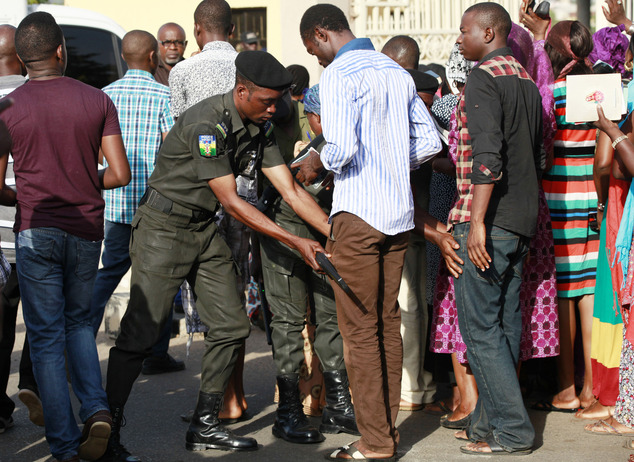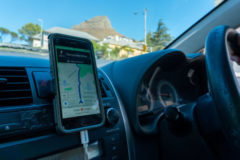If you are a young Nigerian man, there is a high chance that at some point, you will get stopped and frisked/harrassed by the Nigerian police. At the point of harrassment, you may hear things like “What do you do for a living?”, “Bring out your laptop”, “Unlock your phone” – most likely the last two.
During my service year in Ebonyi State, I’d often get stopped by the police on my way to/from Abakaliki. They’d always ask what I did for a living & if my response was friendly enough, they’d ask me for a small “something” to keep their spirits afloat in the harsh Eastern sun before sending me on my way.
Sometimes, they’d ask me to bring out my laptop or unlock my phone so they could go through it – reason being I might be a “Yahoo Boy” also known as cash cows (for them).
But should the police be able to not only stop me for a random search, but also go through my emails? I’m no rights expert but a random pot-bellied fella digging through my emails and pictures feels a lot like an invasion of my privacy. So I did some digging of my own.
According to the recently passed Digital Rights and Freedom Bill, “Government agencies shall obtain a search warrant based on probable cause before obtaining transactional data in real time about when and with whom an individual communicates using email, instant messaging, text messaging, the telephone or other communications technology … Government agencies shall demonstrate to a court that such data is relevant to an authorized criminal investigation.”
On this, Olusola Olubi from The Longe Practice, a startup-focused boutique law firm, tells me, “According to the Police Act, the police have a general power to prevent and detect crime, apprehend offenders, and preserve law and order. In carrying out this function, a police officer has the power to stop and search a person in circumstances where the person is in possession of stolen or unlawfully obtained property.”
“That means the Police can only search in circumstances where there is a reasonable suspicion that the property with a person is stolen or unlawfully obtained,” says Alfred Njokama, a lawyer at a firm in Lagos. Interesting.
The question then becomes: what determinants does the police use in determining reasonable suspicion? Does the Police have reliable information before stopping and searching people? Do they have the power to look through people’s phone and computers?
“Although they [the police] have a general power to prevent and detect crime, they do not have a specific power authorising them to search people’s phones and computers. The contents of a person’s phone and computer is his personal information and he has a right to his privacy,” says ‘Sola. “The Constitution, however, provides that in the interest of public safety, health, defence and order, this right can be infringed. So if the Police has reason to believe that the information in a person’s computer or phone is needed for the investigation of a crime, they can search it. But they must inform either a Magistrate or High Court or get a search warrant before conducting the search of a person’s phone or computer.”
So what redress is available to me when I am searched without a warrant and my phones/computers are searched as well? Do I go the hashtag way, file a suit or shout “Heeeeelp!” as loud as possible?
‘Sola tells me in an email that hashtags may be a great way to draw public attention but it isn’t necessarily legal redress. Ideally, he says, you can file a suit against the authority that illegally detained you because you are entitled to compensation and public apology from the authority that detained you.
So yes, the Nigerian police can stop and search you and look through your email but ONLY if they have a search warrant signed by a Magistrate or High Court (if they have justifiable reason to think you are involved in illegal activity, for example); or if they have reasonable suspicion that the laptop or phone in your possession is stolen or was obtained unlawfully. Still, it is important to remember that there are no explicit definitions as to what “reasonable suspicion” is, so caution is advised when you find yourself in these situations.




















